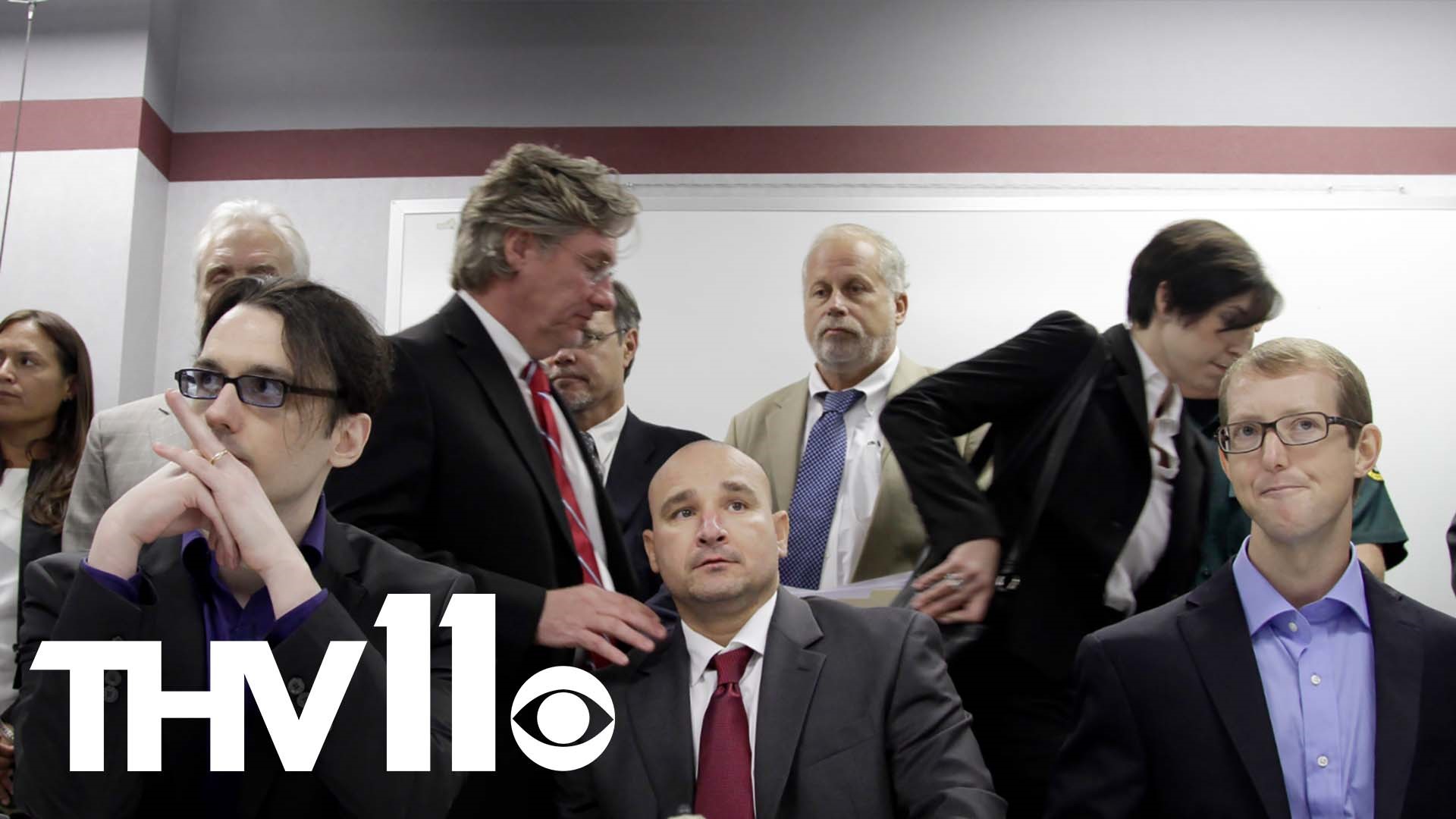CRITTENDEN COUNTY, ARKANSAS, Ark. — Update: On March 10, Damien Echols of the West Memphis Three announced online that he will be going to court on June 23 in order to get prosecutor Crestman to hand over the DNA needed for the lab to begin testing.
The Crittenden County Prosecutor Keith Crestman has filed a motion for the State of Arkansas to deny Damien Echols' petition for newly found DNA evidence to be tested in the case of three boys killed in West Memphis in 1994.
Echols said the scientific testing of the ligatures used to bind the child victims will exonerate him as well as Jason Baldwin and Jessie Misskelley, the other two men convicted in the killings.
In Crestman's motion, he claims that the petition filed by Echols doesn't "follow the law's requirements."
First, the motion states that because the petition was filed in Crittenden County and Echols was convicted in Craighead County, the petition is unlawful.
The motion also points out that Echols is not currently serving a sentence. "To allow a nonprisoner to seek Act 1780 relief would make the habeas corpus statute absurd," the document states.
Crestman goes on to say that if the DNA evidence does exclude him, the court has two options, to grant a new trial or for Echols to be resentenced.
And because technically Echols has finished his sentence, "he's no longer a prisoner," and the petition he's seeking "isn't an available remedy."
In January, Echols said that Crestman "has refused to cooperate with new DNA testing. He says if we want it done, we'll have to fight for it in court."
According to the initial petition filed by Echols and his legal team, "No matter how one looks at it," using advanced technology that wasn't around in 1994 to test the ligatures for DNA "is all about trying to ensure that 'justice' is done in this case."
Crestman's motion states that the DNA testing method, an M-Vac, has not been proved to be a "generally accepted scientific testing method," and must be proven by Echols' team do be as such.
The method used by M-Vac is a "one-shot deal that forever alters it," the motion states, and therefore would be against the law because the law requires physical evidence in a violent offense case to be preserved permanently.
"Echols knows that his DNA is not on those ligatures because he had no role in committing these murders," the petition filed by Echols to the state said.
Ultimately, Crestman's motion said Echols has to show that the DNA testing establishes actual innocence. "Testing that'd only produce evidence that could support a theoretical defense is insufficient."
The motion went on to list the evidence provided in the original trial that a jury convicted Echols and his two other co-defendants, including the controversial confession of Jason Misskelley and "multiple witnesses" testifying—a few who have since recanted their testimony.
If the petition is granted, the DNA will be tested at a forensic lab chosen and paid for by Echols' legal team.
(Editor's Note: The attached video is a report from Jan. 18, 2021.)

